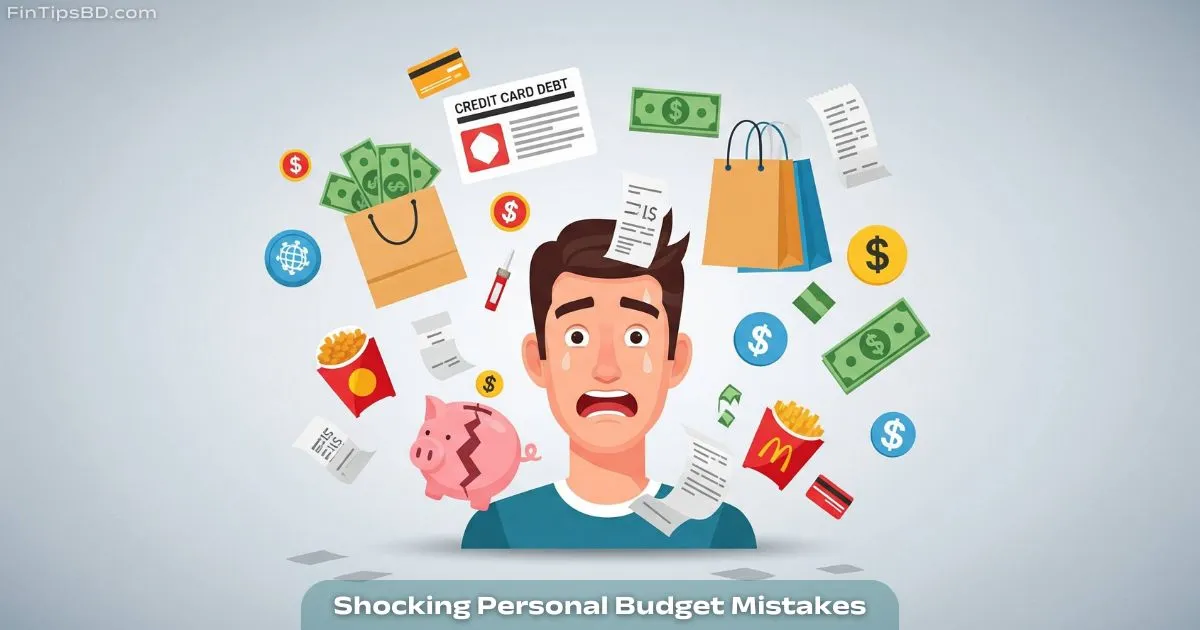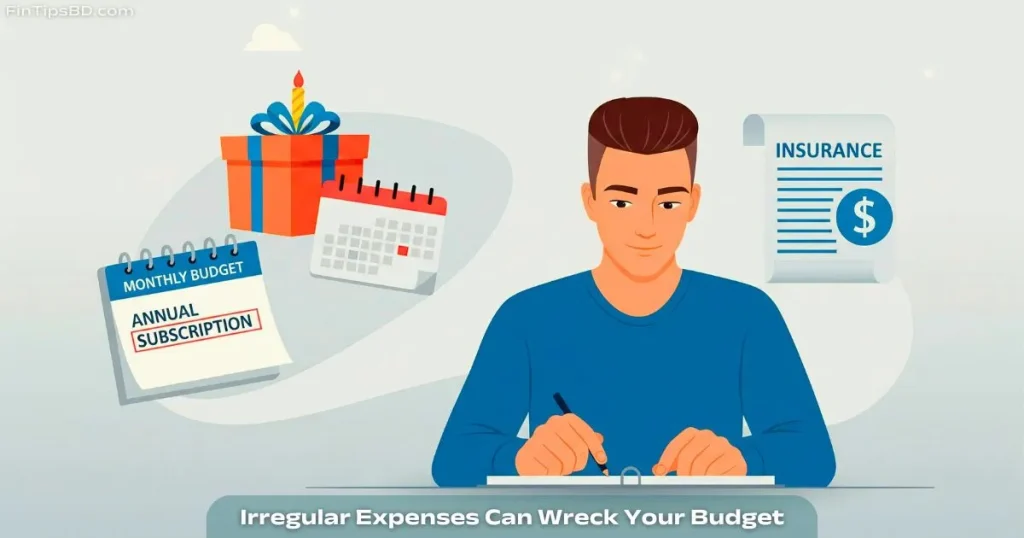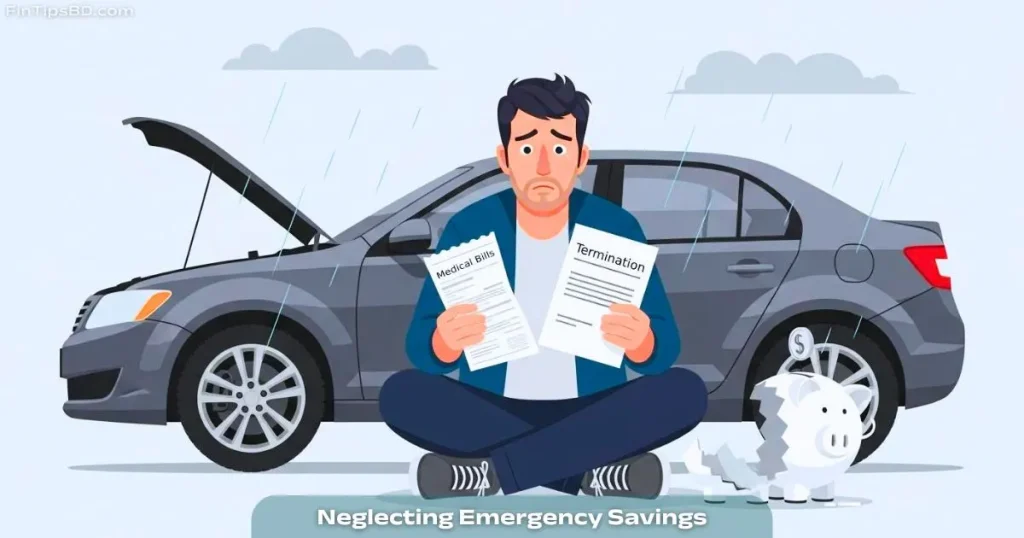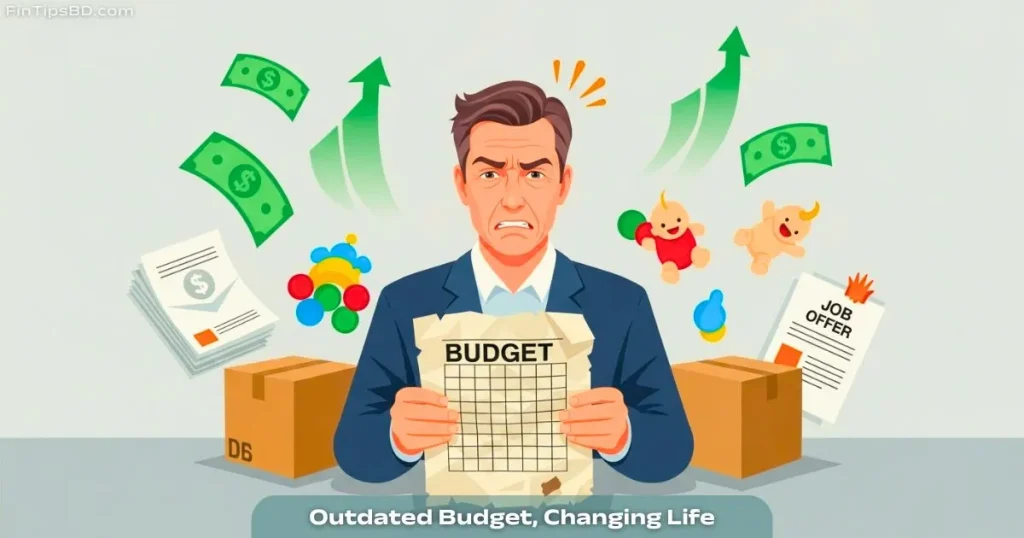10 Shocking Mistakes That Ruin Your Personal Budget – Are You Guilty Too?

Creating a personal budget is arguably one of the best financial habits you can build. However, it is also very easy to trip over in many ways, making many think they are on the right path, only to end up being held in the paycheck-to-paycheck cycle, accruing debt, or saving much less than they wanted to. This common dissonance usually follows from the lack of registration of typical budgeting folly. And without the knowledge of such possible wrong steps, your financial plan may be flawed right from the outset.
This guide is going to uncover 10 rather unexpected but common mistakes that can throw even the best intentions of the personal budget off track, and best of all, it’s providing ways around them.
Table Of Contents
1. Not Having a Personal Budget
The biggest rookie mistake is just not having a personal budget. If you don’t know what your monthly income, expenses, and savings are, you’re basically managing your money in the dark. Even if you think you have a “rough idea,” chances are high that you’re underestimating how much you spend and overestimating how much you save.
Why it matters: A good personal budget shows you where you are money-wise, helps you make smart money choices, and reveals little spending habits that you might not notice otherwise. Without it, you just respond to costs instead of planning ahead for them. It’s like trying to get somewhere without a map.
2. Underestimating the Cumulative Power of Small Expenses

Do you frequently grab coffee, dine out for lunch, or indulge in small online impulse purchases? While these individual amounts seem negligible, their cumulative impact over time can be substantial—often tallying up to thousands of dollars annually.
Example: Spending just $5 a day on coffee or snacks translates to $150 a month, or a staggering $1,800 a year. Imagine what you could achieve by saving or investing that money.
The Fix: Diligently track every single expense for at least one month. This practice will illuminate spending leaks you never even realized existed, providing valuable insights for refining your personal budget.
3. Over-reliance on Credit Cards
Credit cards offer undeniable convenience, but they can quickly morph into a financial quagmire. Utilizing them without a clear repayment strategy frequently leads to escalating balances and burdensome compounding interest charges.
The Problem: Credit cards often create a false sense of affordability. They encourage a “buy now, worry later” mentality, but the accumulating interest significantly inflates the actual cost of your purchases, undermining your personal budget.
The Solution: Make it a strict rule to only use credit cards when you can comfortably pay the entire balance each month. Prioritize budgeting for your purchases before you swipe your card.
4. Overlooking Irregular Expenses

Many people diligently budget for recurring expenses like rent or utility bills, but they often neglect irregular costs such as quarterly insurance premiums, annual subscriptions, or birthday gifts. These “surprise” expenditures often destabilize a carefully crafted personal budget when they unexpectedly arise.
The Tip: Review your financial statements from the past year to identify all irregular costs. Divide the total of these expenses by 12 and set aside that specific amount each month. This proactive approach ensures you’re prepared when these costs come due.
5. Inconsistent Spending Tracking
Having a personal budget is an excellent first step, but it becomes ineffective if you don’t actively track your spending. It’s akin to starting a diet but never checking food labels—you’re likely to derail your progress without realizing it.
The Result: Without consistent tracking, you can easily overspend without awareness, subsequently blaming your personal budget for its perceived failure.
Best Practice: Leverage a budgeting app, a simple spreadsheet, or even a dedicated notebook to meticulously record every transaction. Make it a habit to compare your actual spending against your budgeted amounts on a weekly basis.
6. Neglecting Emergency Savings

Unforeseen events like car breakdowns, unexpected medical bills, or a sudden job loss can completely derail your financial stability if you lack an adequate backup fund.
How It Impacts Your Budget: Without an emergency fund, such unforeseen circumstances often force you into debt, severely disrupting your financial well-being and making your personal budget harder to maintain.
The Goal: Aim to build an emergency fund that covers 3–6 months of your essential living expenses. Even if you have to start small, every dollar counts—even $500 can provide a crucial safety net.
7. Living Beyond Your Means
Spending more money than you earn is one of the quickest routes to budget ruin. This can occur even with a high income, as lifestyle inflation often escalates in tandem with earnings, making a robust personal budget even more critical.
The Red Flag: If you find yourself relying on credit to cover routine expenses or consistently failing to save any portion of your income, you are likely overspending.
The Fix: Honestly reassess your lifestyle. Prioritize needs over wants, and then construct a personal budget that truly aligns with your income, rather than your desires.
8. The Absence of Financial Goals
A personal budget without defined goals is like navigating with a GPS but without a destination. When you lack a clear purpose, it becomes much easier to overspend and significantly harder to stay motivated in your financial journey.
Why Goals Matter: Saving for a down payment, systematically paying off student loans, or diligently building retirement funds gives your personal budget meaning, direction, and a powerful incentive to stick to your plan.
How to Do It: Clearly articulate your short-term and long-term financial goals. Then, allocate a specific percentage of your income towards achieving each of these objectives.
9. Striking the Right Balance: Not Too Strict, Not Too Loose
Extreme budgeting often backfires. If you strip away every enjoyable aspect of your life, you’re likely to eventually rebel and engage in an overspending spree. Conversely, a personal budget that is too lax offers no genuine control.
Balance is Key: Consciously leave some room in your personal budget for occasional treats, entertainment, or discretionary spending—but always within predefined limits.
A Tactic: Consider adopting the 50/30/20 rule as a flexible budgeting framework: allocate 50% of your income for needs, 30% for wants, and 20% for savings and debt payments. This approach provides structure without being overly restrictive.
10. Failing to Regularly Adjust Your Personal Budget

Life is dynamic, and your personal budget should be too. Rigidly adhering to a plan that no longer fits your evolving circumstances can do more harm than good.
Example: A new job, the arrival of a baby, a residential move, or a significant shift in income all necessitate adjustments to your spending priorities and, by extension, your personal budget.
The Fix: Make it a habit to revisit your personal budget monthly or immediately following any significant life events. Adjust your income projections, expense categories, and financial goals as needed to ensure you remain on track.
Why Your Personal Budget Deserves Serious Attention
The truth is, managing a personal budget extends far beyond simply controlling your spending. It’s about cultivating peace of mind, alleviating financial stress, and confidently progressing toward your future aspirations. When implemented correctly, budgeting empowers you to live within your means, systematically eliminate debt, and steadily build wealth over time.
However, even the most meticulously planned personal budget can falter if you succumb to these 10 common traps. Awareness is the crucial first step toward correction.
Take the necessary time to analyze your financial habits, regularly update your plan, and maintain consistent discipline. You’ll soon discover that budgeting not only becomes easier but also profoundly more rewarding.
Keywords: budgeting mistakes, financial goals, emergency fund, credit card debt, lifestyle inflation, monthly expenses, money management, budget tracking, saving tips, expense planner, household budget, overspending habits, debt control, budgeting habits
